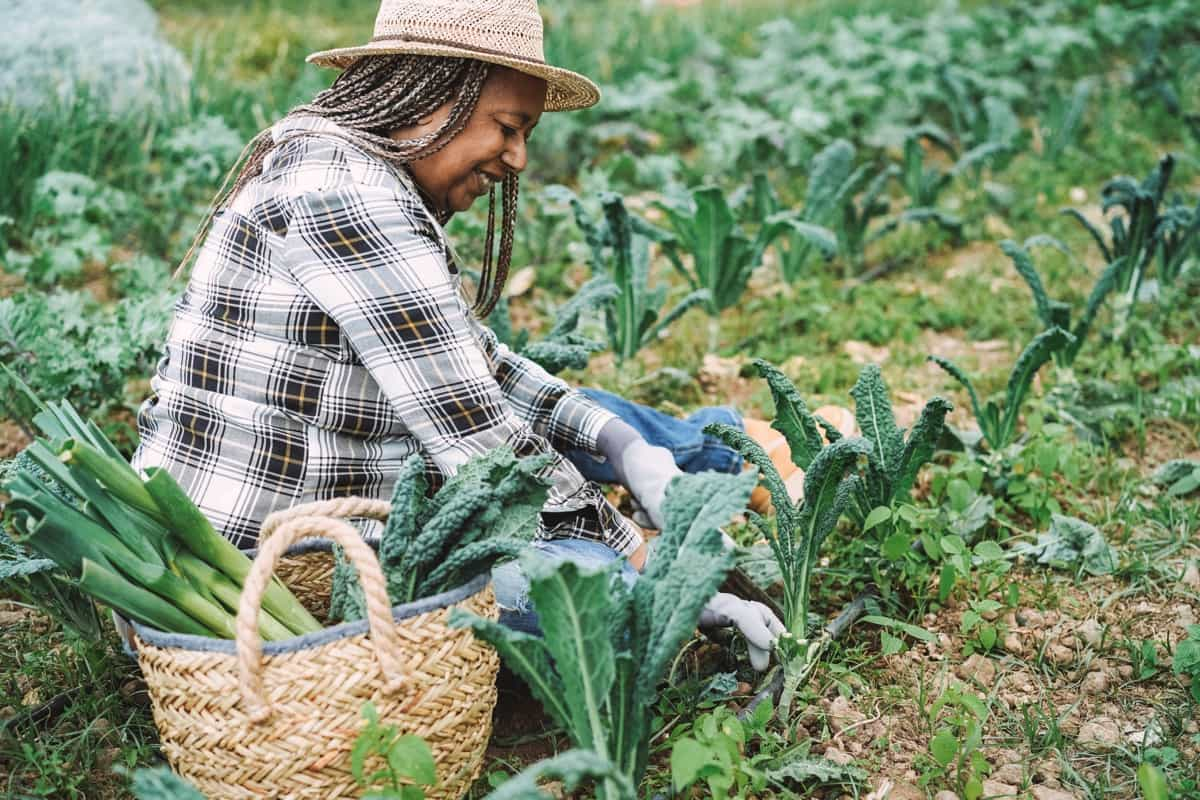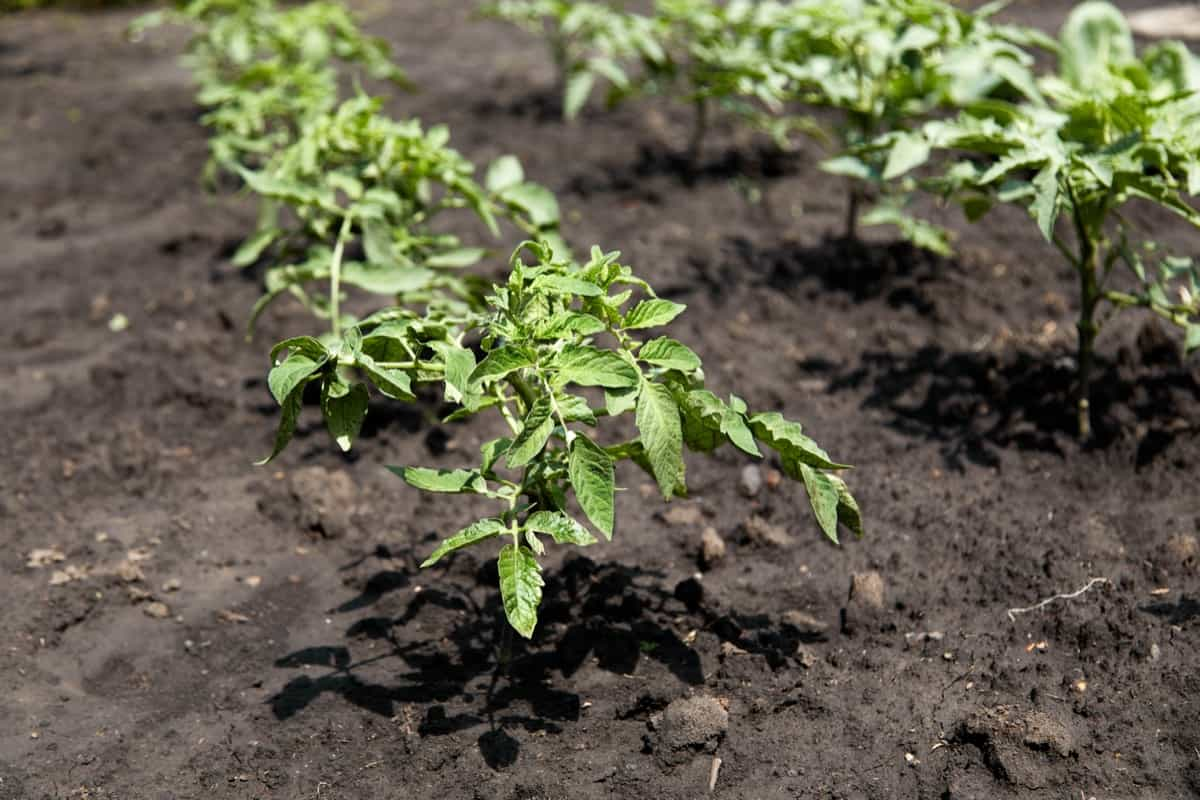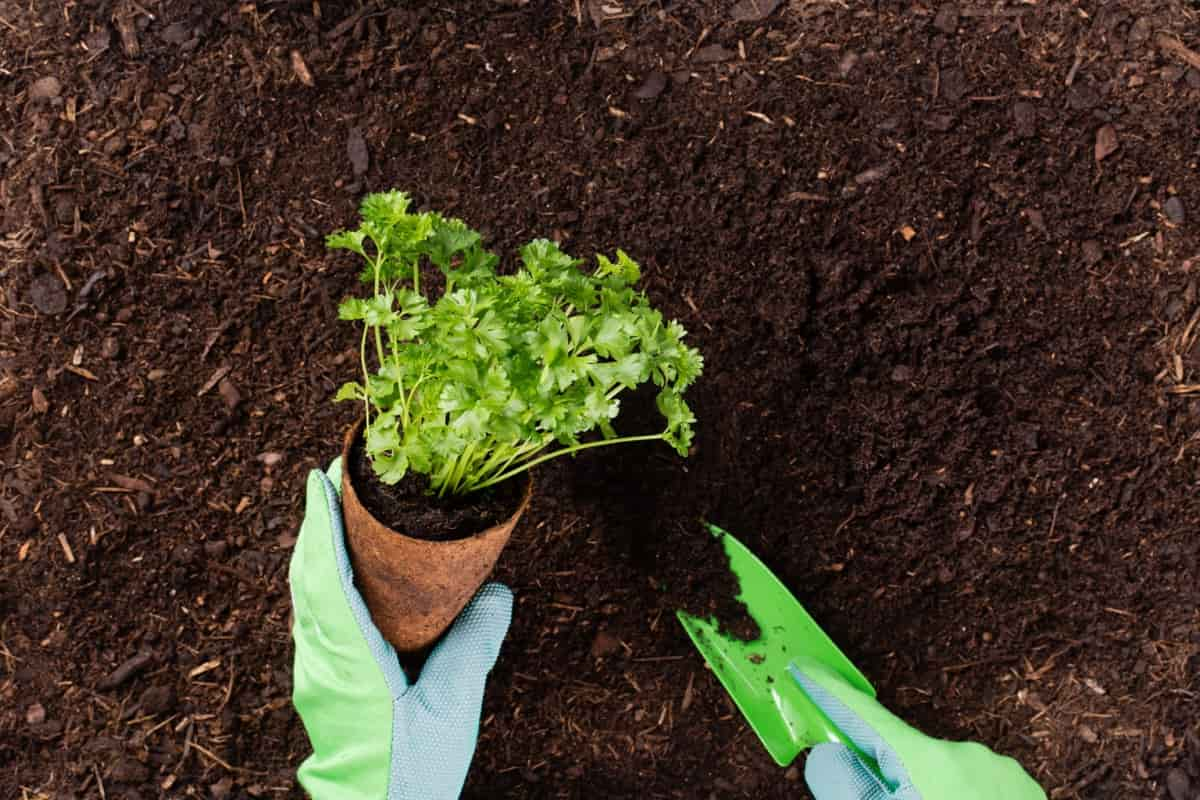If you’ve ever asked, “When should I start my vegetable garden in Michigan?” or “When should I start planting my garden in Michigan?” you’re not alone. Planning a successful vegetable garden in the Great Lakes State can be tricky due to its diverse climate zones and seasonal changes.

This article will guide you through gardening in Michigan month-by-month, outlining when to plant beans, the best vegetables to grow, and much more. So, let’s dive in and discover what can be planted in July in Michigan and what vegetables grow in the state year-round.
When to Plant Vegetables in Michigan
Understanding Michigan’s Climate Zones
Michigan has diverse climate zones, ranging from USDA Hardiness Zones 4a to 6b. This means the state experiences cold winters and mild to warm summers, affecting when you should start vegetable seeds in Michigan. Knowing your specific zone will help you plan your garden better and set the right timetable for planting various vegetables.
Factors Affecting Vegetable Planting Dates in Michigan
Several factors can influence your vegetable planting schedule. Soil temperature is crucial, as too cold or hot soil can harm seeds. Precipitation and daylight hours also affect how well your vegetables grow. For instance, some vegetables like more sun, while others can do well in partial shade. Local frost dates are another important consideration, helping you know when it’s safe to start planting outdoors.
Planting Vegetables in Northern Michigan
In Northern Michigan, you’ll want to wait for the last frost date before sowing seeds. Generally, this happens around late May or early June. Cold-resistant vegetables like spinach, peas, and radishes can be planted as early as late April. Other vegetables, like tomatoes and peppers, should be planted indoors first and then transplanted after the danger of frost has passed.
Optimal Vegetable Planting Times for Southern Michigan
Southern Michigan generally experiences milder winters and earlier springs than the northern regions. You can usually start planting cool-weather vegetables like lettuce and kale in late March or early April. Tomatoes, cucumbers, and peppers are best started indoors in March and transplanted outdoors in late May or early June.
Vegetable Planting Schedule for Michigan
For a year-round guide, consider the following. In early spring, focus on cold-tolerant crops like spinach and peas. Late spring and early summer are great for planting beans, tomatoes, and summer squash. If you’re wondering what can be planted in July in Michigan, herbs like basil and vegetables like corn are good choices. Late summer to early fall is ideal for planting winter squash and root vegetables.
Recommended Vegetables for Early Spring Planting in Michigan
Early spring is an exciting time for Michigan gardeners. Spinach, peas, and radishes are great options. These vegetables can tolerate colder soil temperatures and are best planted when the soil can be worked. Lettuce is another good choice, along with kale and Swiss chard.
Late Spring and Early Summer Vegetable Planting Guide for Michigan
If you’re keen on planting a variety of veggies, late spring and early summer are the perfect times. This is when to plant beans in Michigan, along with cucumbers, squash, and carrots. This season is also ideal for transplanting any seedlings you started indoors, including peppers and tomatoes, which are some of the best vegetables to grow in Michigan. These vegetables will thrive and provide a bountiful harvest with the right care.
Fall Vegetable Planting Tips for Northern Michigan
As summer wanes and fall approaches, Northern Michigan gardeners have another opportunity to plant various vegetables that thrive in cooler weather. Late August to early September is ideal for planting crops like spinach, radishes, and leafy greens such as kale and Swiss chard. These veggies tolerate colder temperatures and often have a sweeter taste when grown in cooler conditions.
In case you missed it: When to Plant Peppers in Michigan: Growing Bell Peppers, Hot Peppers, Banana Peppers, and Jalapenos

Root vegetables like beets, turnips, and carrots can also be successfully planted during this period, as they can handle a bit of frost, and the cool weather often improves their flavors. It’s essential to watch the weather forecasts for early frosts and be prepared to use protective covers or mulch to protect your plants if needed.
Ideal Fall Planting Dates for Southern Michigan
For gardeners in Southern Michigan, fall offers a wider window for planting cool-season crops. Late August to mid-September is generally the best period for planting a variety of leafy greens like lettuce, spinach, and kale. Root vegetables like radishes, carrots, and beets can also thrive when planted in early to mid-fall, allowing them to mature before the colder winter temperatures set in.
Additionally, crops like garlic and onions can be planted in October for a late spring harvest the following year. Since Southern Michigan generally experiences milder fall temperatures than the north, you have more flexibility. However, it’s still crucial to watch out for unexpected frosts and be prepared to protect your plants accordingly.
When to Plant and What Vegetables to Grow in Michigan in Winter
Winter in Michigan is typically not conducive for outdoor gardening due to freezing temperatures and snow. However, for the avid gardener, winter doesn’t have to mean the end of vegetable growing. You can turn to indoor gardening or use greenhouses and cold frames to continue growing certain crops. Leafy greens like spinach and lettuce can be grown successfully indoors with proper lighting and temperature control.
Microgreens and herbs are also excellent candidates for indoor winter gardening. If you have a greenhouse or a cold frame, consider growing cold-hardy vegetables like kale, collards, and some types of lettuce, which can survive with some protection against the harshest winter elements. This allows you to enjoy fresh, homegrown produce even during the colder months, making year-round gardening in Michigan a rewarding endeavor.
Vegetable Planting Schedule/Calendar Table for Michigan
| Vegetable | Northern Michigan | Southern Michigan |
| Spinach | Late April – Early May | Late March – Early April |
| Peas | Late April – Early May | Late March – Early April |
| Radishes | Late April – Early May | Late March – Early April |
| Lettuce | Late April – Early May | Late March – Early April |
| Kale | Late April – Early May | Late March – Early April |
| Tomatoes | Early June | Late May – Early June |
| Peppers | Early June | Late May – Early June |
| Cucumbers | Early June | Late May – Early June |
| Beans | Early June | Late May – Early June |
| Corn | Early June | Late May – Early June |
| Carrots | Early June | Late May – Early June |
| Basil | Early June | Late May – Early June |
| Beets | Late August – Early September | Late August – Mid-September |
| Turnips | Late August – Early September | Late August – Mid-September |
| Garlic | October | October |
In case you missed it: When to Plant Tulip Bulbs in Michigan and When Do Tulips Bloom in Michigan

Conclusion
Whether you’re a seasoned gardener or a beginner, understanding Michigan’s diverse climate and seasonal shifts is key to successful vegetable gardening. Each season offers unique opportunities, from early spring plantings of cold-hardy veggies like spinach and radishes to late summer sowing of beans and corn.
Fall and even winter also provide chances to extend your gardening activities through cool-season crops or indoor gardening methods. Armed with this comprehensive guide, you’re now well-equipped to enjoy a bountiful harvest all year round, making the most of what each season offers in Northern and Southern Michigan.
- Feed Your Flock for Less: Top 10 Tips to Save on Chicken Feed
- Ultimate Guide to Ossabaw Island Hog: Breeding, Raising, Diet, and Care
- Hatching Answers: The Top 10 Reasons Your Chickens Aren’t Laying Eggs
- Eggs and Economics: Breaking Down the Cost of Raising Backyard Chickens
- Defend Your Greens: Proven Methods to Keep Iguanas Out of Your Garden
- Ultimate Guide to Cinnamon Queen Chicken: A Comprehensive Guide for Beginners
- Ultimate Guide to California Tan Chicken: Breeding, Raising, Diet, Egg-Production and Care
- Ultimate Guide to Marsh Daisy Chicken: Breeding, Raising, Diet, and Care
- 10 Types of Chicken Farming Businesses You Can Start for Profits